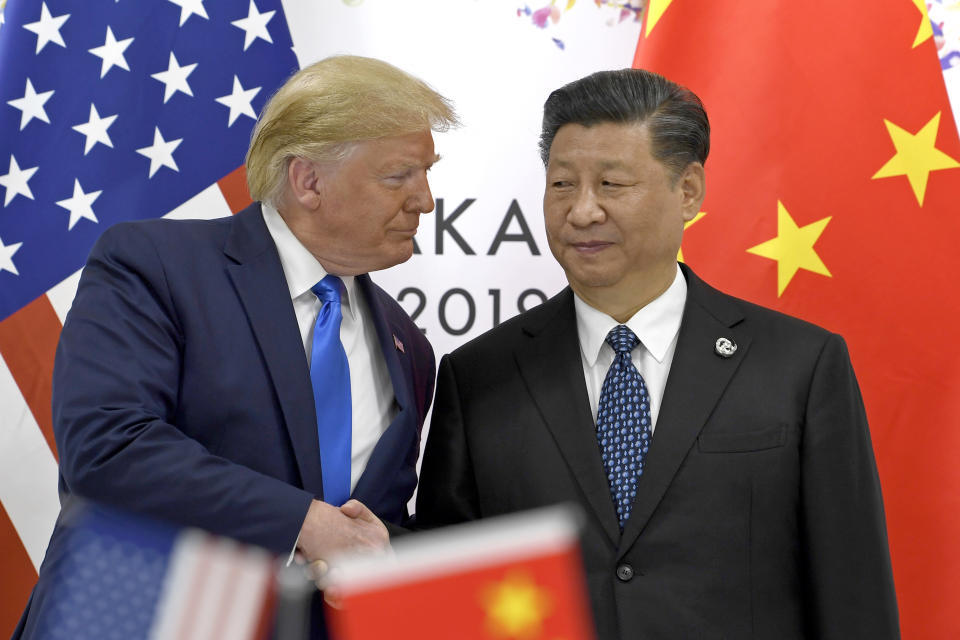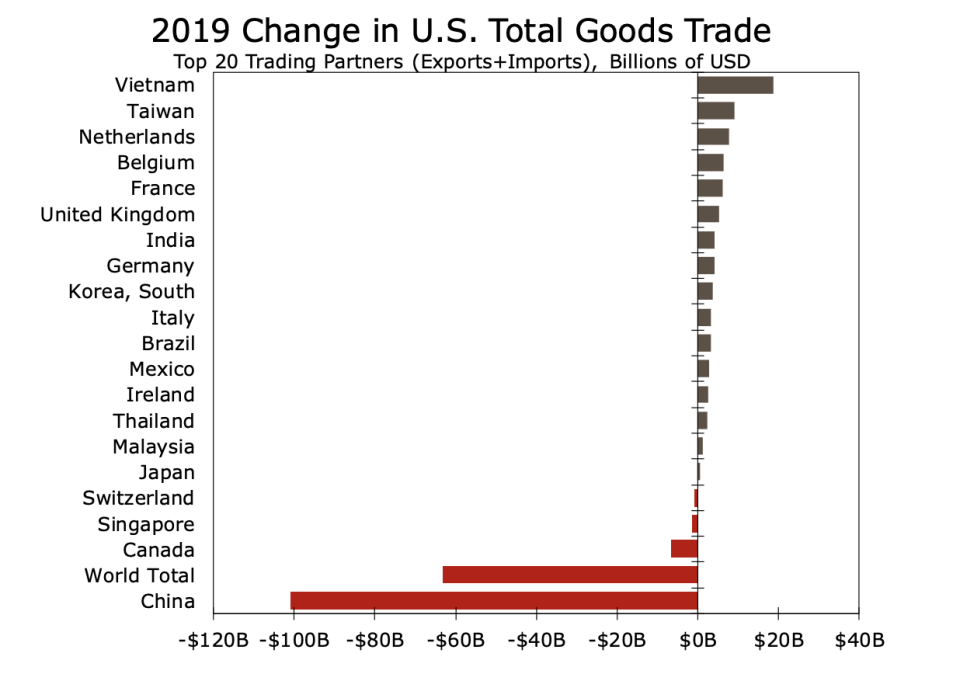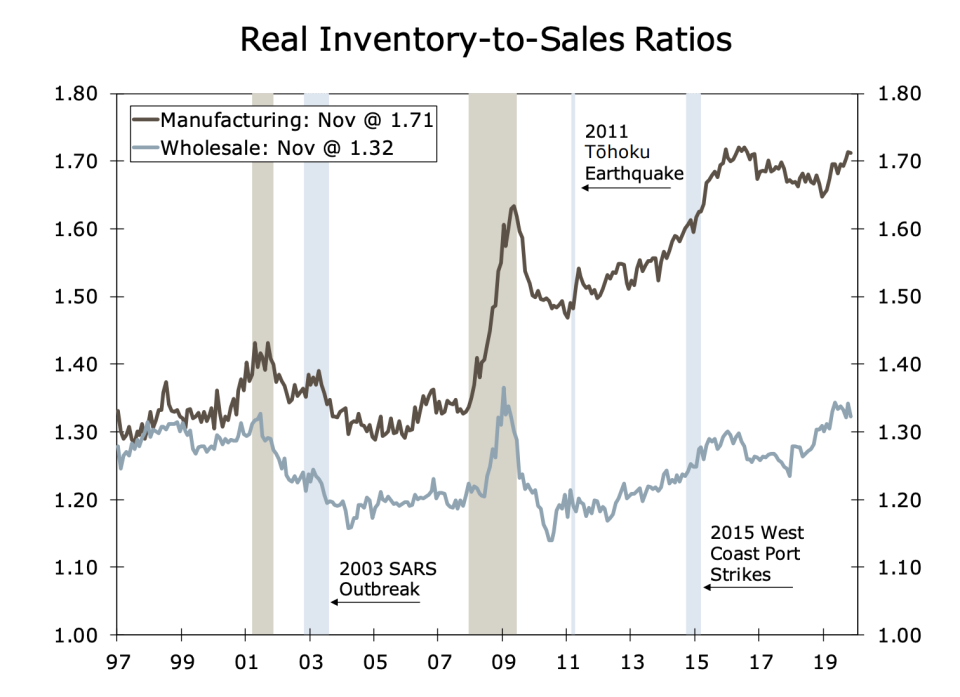The US-China trade war unintentionally prepared companies for coronavirus
A global outbreak of the new strain of coronavirus (COVID-19) has put a stick in the spokes of many supply chains that rely on China’s manufacturing.
However, some companies may be in a slightly better position than they otherwise might have due to the China-US trade war, a major market narrative since January 2018 when President Trump announced additional tariffs on Chinese imports.
Because of the protracted trade war, some U.S. companies sought to get shipments out of China ahead of previously scheduled tariffs, according to a note from Wells Fargo securities.

The bank says the reports are largely anecdotal, but the fact that inventory-to-sales levels are especially high compared to past disruptive events seems to suggest that companies accelerated the manufacturing timeline of their goods and got them shipped out faster than usual.
What this means is that some firms, with their higher-than-usual inventory levels, could have more time to source other manufacturing options if China’s manufacturing sector doesn’t recover quickly enough. Wells Fargo’s securities research team noted this is “cold comfort” for the computer and electronics sector, however, which is still very China-based, as finding another country to manufacture could be challenging. For instance, earlier this month Apple warned investors that it doesn’t expect to meet the revenue guidance provided for the March quarter because iPhone production in China was ramping up more slowly than anticipated.

Companies have already been exploring outside of China
Furthermore, the trade war pushed many companies to seek to diversify their manufacturing outside of China, giving them possible venues to continue their production and limit supply chain disruption.
Last June, Apple (AAPL) asked suppliers to look into shifting the end stages of assembly from Chinese manufacturing sites. The trade tensions were getting too hot. Some reports pegged the company to potentially move between 15% and 30% of its hardware production.
Wells Fargo says that Vietnam, which has been spared so far from the coronavirus, could be a key part of ameliorating disruptions. So far, Vietnam has been the biggest foreign beneficiary in the trade war.
“Trade data from 2019 suggest U.S. firms moved away from reliance on China with Vietnam,” the note says. “The production shift may cushion the blow for U.S. manufacturers that in the past might have relied solely on China.”

A furniture company, Adidas, Samsung, and others are among the companies that have embraced Vietnam as a China hedge. Still, China is a whole lot bigger than Vietnam, potentially limiting the cushion it can provide.
However, there’s one interesting catch in play. The research noted there is skepticism that the goods are actually coming from Vietnam, rather than simply serving as a back door into the U.S. market for Chinese goods. The increase in Vietnamese production is bigger than the next two combined — Taiwan and Netherlands.
But if the bulk of these Vietnamese goods are really coming from Vietnam and not China — and data suggests at least some are — that’s good news for global supply chains.
—
Ethan Wolff-Mann is a writer at Yahoo Finance focusing on consumer issues, personal finance, retail, airlines, and more. Follow him on Twitter @ewolffmann.
19 companies where the CEO makes 1,000x the median employee’s salary
The government is finally cracking down on companies that enable robocalls
How an insured pro athlete ended up with $250,000 in medical debt
The first thing to do after you're involved in a hack, according to experts
'Snake oil salesmen': Two neurologists respond to the CBD craze
Read the latest financial and business news from Yahoo Finance
Follow Yahoo Finance on Twitter, Facebook, Instagram, Flipboard, LinkedIn, YouTube, and reddit.